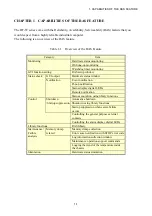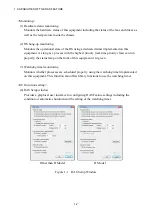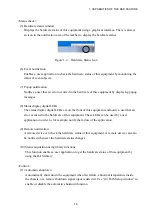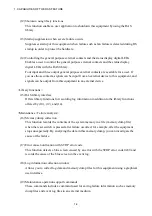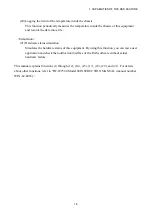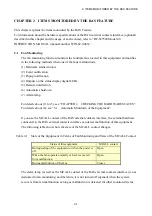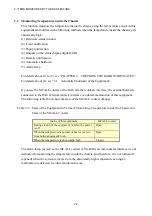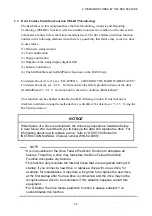
ii
<Note for storage capacity calculations>
●
Memory capacities and requirements, file sizes and storage requirements, etc. must be
calculated according to the formula 2
n
. The following examples show the results of such
calculations by 2
n
(to the right of the equals signs).
1 KB (kilobyte) = 1,024 bytes
1 MB (megabyte) = 1,048,576 bytes
1 GB (gigabyte) = 1,073,741,824 bytes
1 TB (terabyte) = 1,099,511,627,776 bytes
●
As for disk capacities, they must be calculated using the formula 10
n
. Listed below are the
results of calculating the above example capacities using 10
n
in place of 2
n
.
1 KB (kilobyte) = 1,000 bytes
1 MB (megabyte) = 1,000
2
bytes
1 GB (gigabyte) = 1,000
3
bytes
1 TB (terabyte) = 1,000
4
bytes
<Note for replacing terms for Windows Server® 2012 R2>
This manual describes user actions in Windows®. The terms "log on" and "log off" in Windows®
7 and Windows Server® 2008 R2 have been renamed "sign in" and "sign out" respectively in
Windows Server® 2012 R2. If the OS you use is Windows Server® 2012 R2, replace the former
terms in this manual with the latter terms as necessary.
Summary of Contents for HF-W7500 40
Page 1: ...WIN 63 0090 03 ...
Page 2: ...WIN 63 0090 03 ...
Page 23: ...This page is intentionally left blank ...
Page 105: ...This page is intentionally left blank ...


















